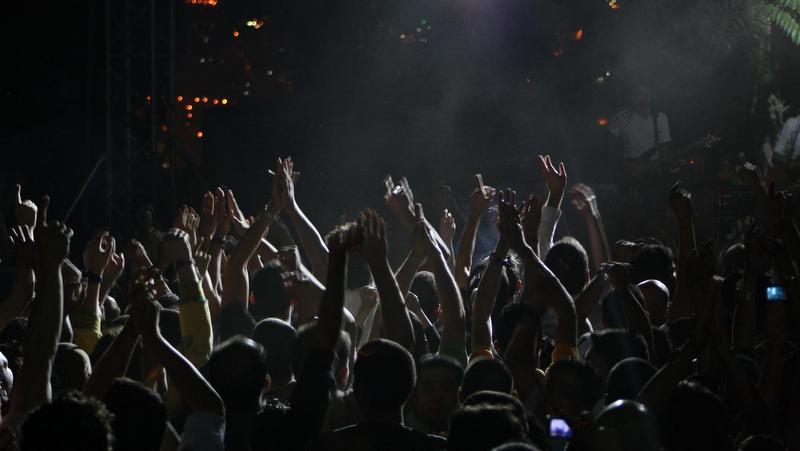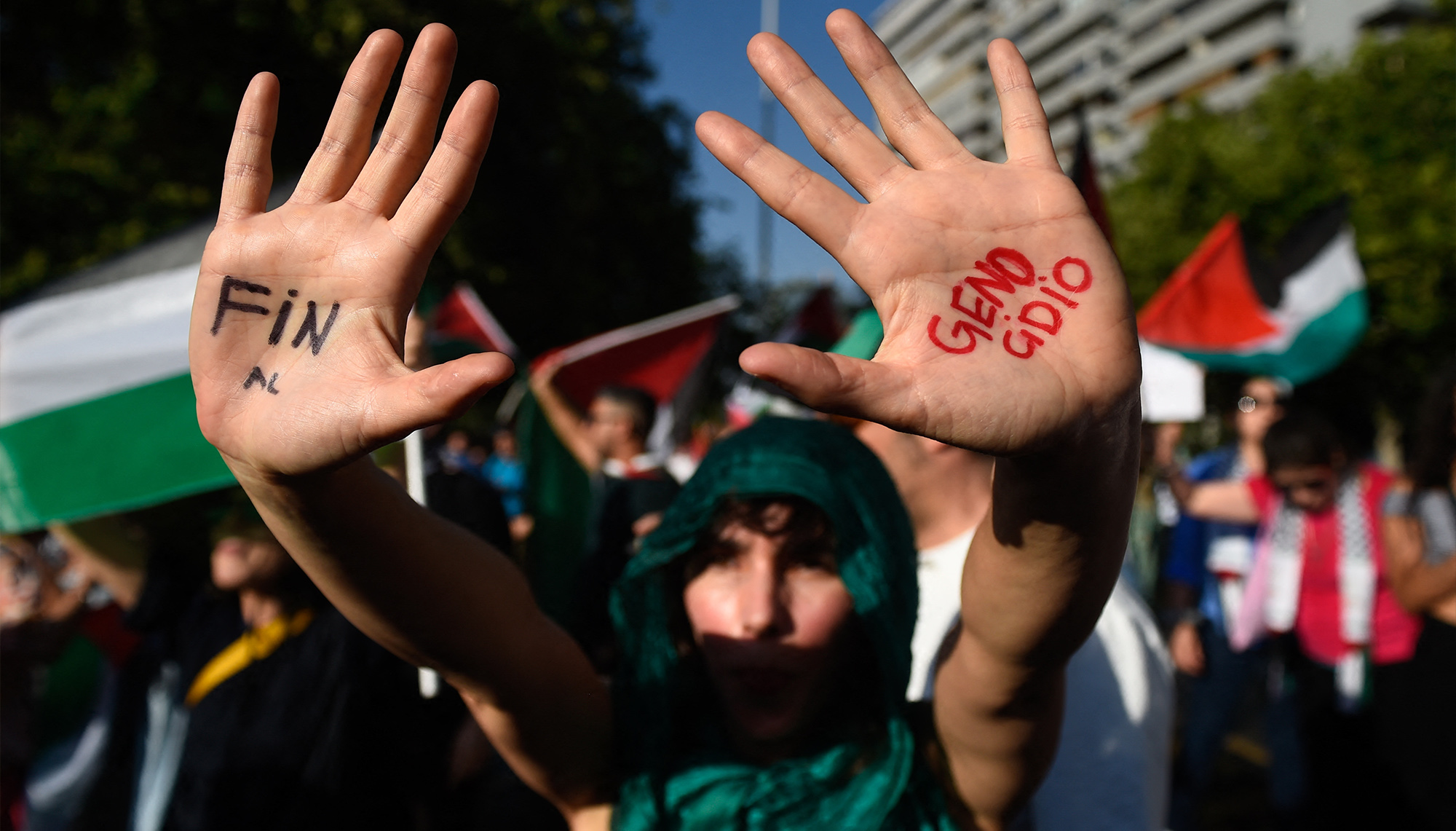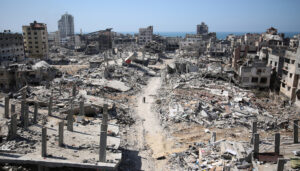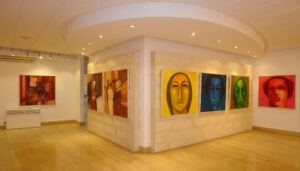Hardly an eyebrow was raised when Autostrad, the Jordanian funk-rock band, announced its decision to hold concerts throughout occupied Palestine and in the occupied Golan Heights between October 5 – 12. Autostrad’s upcoming tour, which includes scheduled gigs in Ramallah, Jerusalem, Jaffa, Nazareth, Haifa, and the Golan, will not be the band’s first visit to occupied Palestine. In December of last year, Autostrad performed in occupied Nazareth, paying no heed to the Palestinians who demanded the cancellation of the concert. Many Palestinians living inside the Green Line regard such visits as normalization, as entry into 1948 Palestine requires a visa from the Israeli occupation embassy. While Autostrad’s tour is far from surprising, it re-opens the whole debate concerning visits by Arab artists to occupied Palestine.
But before rebutting arguments used by those bands and their supporters to justify their performances in occupied Palestine, there are three important points that must be clarified:
Firstly, this article is only concerned with the visits of non-Palestinian Arab artists to Palestine. Artists and intellectuals of Palestinian descent have a sacred right to enter Palestine even if that means getting through via an Israeli-stamped visa. In no way, shape or form can the visit of a Palestinian refugee or descendant of a refugee be equated with the visit of non-Palestinian Arabs.
Secondly, there should be no distinction between performing in the occupied West Bank and performing in 1948 Palestine. The fact that the former only requires a permit while the latter requires a visa is a technicality. No one is allowed to enter the occupied West Bank without the approval of Israeli occupation authorities, who systematically prevent Palestinian refugees from entering the West Bank, and even impose long-time bans on their entrances. Furthermore, visits by Arab artists give the false pretence that the West Bank is under full Palestinian control, and promote the charade of the Palestinian Authority’s success in achieving autonomy when this could not be further from the truth. Well-meaning artists who are convinced that visiting the West Bank is different from entering the 1948 territories should understand that they would not have been allowed in the West Bank without Israel’s full consent, and that their visits unwittingly serve the stability and independence myth that Israel and the Palestinian Authority try to spread.
visits by Arab artists give the false pretence that the West Bank is under full Palestinian control
When it comes to Gaza, however, Arabs can enter through the Rafah crossing – at least when it is open, which is not the case these days – without an Israeli permit. Israel has no direct and explicit control on who is allowed to enter through Rafah crossing. While some might perceive accepting visits by artists to Gaza while rejecting their visits to the West Bank and 1948 Palestine as internalizing the division, this is not really the case. Discussing the West Bank and the 1948 territories separately from Gaza does not intend to foment division, but simply stems from the fact that reality on the ground differs , hence visits to Gaza should be treated differently from visits to other parts of Palestine. This does not mean denying that Gaza is still under a brutal Israeli siege. And it is precisely the need to break the suffocating siege on Gaza that leads us to encourage visits by Arab artists there.
Thirdly, protests by Palestinians are not directed solely at Autostrad. Rather, this campaign targets any form of normalization in general, and cultural normalization in particular. The aim is to dissuade all Arab bands and artists from visiting occupied Palestine. Autostrad’s scheduled tour caps off a summer packed with concerts, festivals, and performances by Arab artists in Palestine. The increasing number of artists who enter Palestine through an Israeli permit or visa and thus break their duty to boycott the Israeli occupation – regardless of intention – is extremely disturbing. Also disturbing is the fact that their visits have begun to be received as a routine. There is something terribly wrong when Palestinians from Gaza and the West Bank are banned from entering Haifa and Nazareth while an Arab band can do this freely. There is something terribly wrong when a Palestinian-American teacher is denied entry into the West Bank just ahead of classes she was supposed to give while, on the other hand, visiting the West Bank is a routine for many Arab artists. And there is something terribly wrong when a displaced Syrian from the occupied Golan cannot return to her land while an Arab musical band performs there without restrictions. Failing to understand this irony and insisting that these visits are morally right is both ignorant and naïve.
There is something terribly wrong when Palestinians from Gaza and the West Bank are banned from entering Haifa and Nazareth while an Arab band can do this freely
Arab artists who schedule performances in Palestine insist that the purpose of these performances is to communicate with Palestinian inside. Let us, for the sake of discussion, assume that this is indeed their intention and that they are completely and utterly honest about it. Does performing in Palestine actually achieve this goal? The answer is: No.
The bands concerned are often of elitist bands whose fans are mostly bourgeois Palestinians, financially capable of travelling to Jordan to watch Autostrad or other Arab bands perform in Amman. As it stands, most of the bands who come here are highbrow and have a selective, specific concert audience in mind. As political activist Thameena Husary stresses, this is, of course, not the artists’ fault. But it is sadly peculiar that at a time when many populist Arab singers who have a far larger audience refuse to enter by an Israeli visa, artists expected to know better about politics insist to violate the boycott duty and ignore the objections of Palestinians.
To be sure, consensus does not exist among Palestinians on this issue. Indeed, there are voices that support performances by Arab artists not only in the West Bank, but also in 1948 Palestine and in the occupied Golan. These disagreements have generated a lively debate. While for many of us, rejecting these visits may be a foregone conclusion, there are those who do not view them as normalization of occupation. They justify their stance by the need to communicate with our Arab neighbours to help end our isolation. This justification is problematic. Palestinians inside Palestine do not need Autostrad or any other band to perform in Palestine in order to promote communication with our Arab surroundings. There are countless other ways to connect with Arabs outside without having to normalize the Israeli occupation. Bridging the gaps and dismantling the barriers that Israel has built between us and the Arab world cannot be done by recognizing, beautifying, and legitimizing the Israeli occupation. Again, most of those using the “communication” argument happen to belong to a certain segment of the Palestinian population that can afford travelling abroad to attend a show.
The situation is definitely not ideal. Under normal circumstances, enjoying music, arts and culture should not be treated as a luxury. But we do not live under normal conditions; we live under occupation. And our goal is to end this occupation, not improve it, much less make it a “five-star” occupation. And though it is hard to admit for some, it is ludicrous and extravagant to complain about not being able to watch an Arab band perform in Nazareth when a Palestinian in al-Khalil or the Jordan Valley, for instance, is banned from entering her own land because Israel has declared it a closed military zone.
Another argument repeatedly used by bands which visit Palestine and their supporters is that these visits are a form of resistance. Unfortunately, these visits have little to do with resistance and much more to do with the growing strength of the entertainment industry. As Palestinian activist Beesan Ramadan says, the concept of resistance as a culture has been replaced with the concept of “cultural resistance” which is not really resistance but commercialization and a boost for wealthy agents who organize these concerts. The path to hell is often paved with good intentions, and this is precisely the case of well-meaning Arab artists who perform in occupied Palestine.
these visits have little to do with resistance and much more to do with the growing strength of the entertainment industry
In light of this, it has become essential to re-define normalization. The Boycott, Divestment, and Sanctions (BDS) National Committee does not view performances by Arab artists in the West Bank or to a Palestinian audience as normalization. But the Committee should not be the only body who has the right to set the criteria for what constitutes normalization. Palestinian youth should take this into their hands and put strict and clear definitions of normalization that aims to prevent us going down a slippery slope. There used to be a time when visiting the West Bank for an Arab artist was unacceptable, and now it has become regular. Soon enough, performing in 1948 Palestine will become normal, too. At this rate, we could easily reach a situation where people begin to justify holding such concerts in Tel Aviv. Even Palestinians who do not object to visits by Arab artists on principle should be concerned about this slippery-slope.
It should be noted that our objection is to any form of normalization, not just cultural normalization. Religious tourism is also normalization and should be rejected as vehemently.
Finally, as a Palestinian from Nazareth living in Jerusalem, I welcome all Arab artists and pilgrims to our land once all of Palestine is liberated, Israel is dismantled, and the right of return for Palestinian refugees is implemented. If Arab artists are truly honest about supporting the Palestinian struggle for freedom and dignity, they should refrain from performing in Palestine until liberation.







